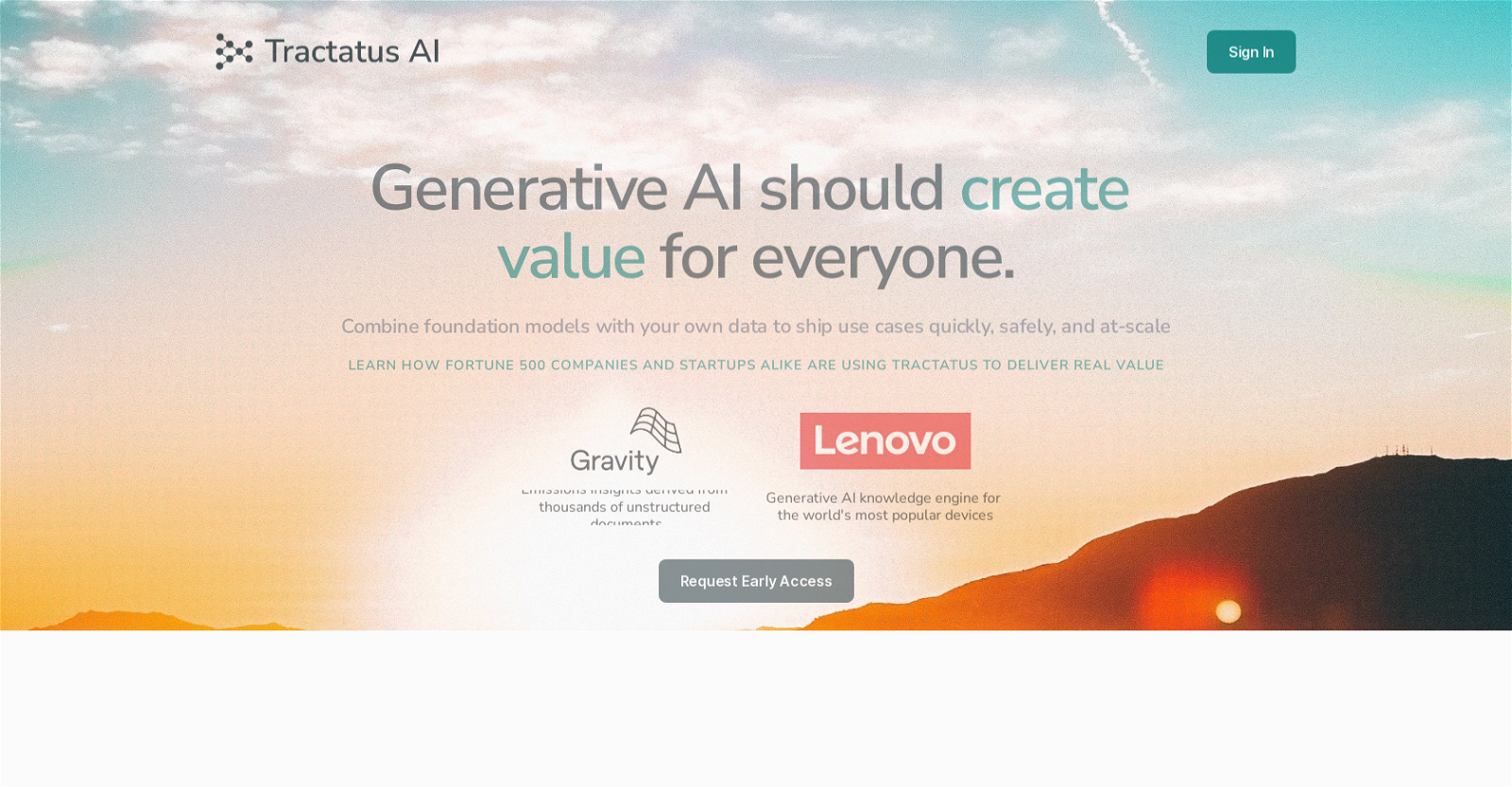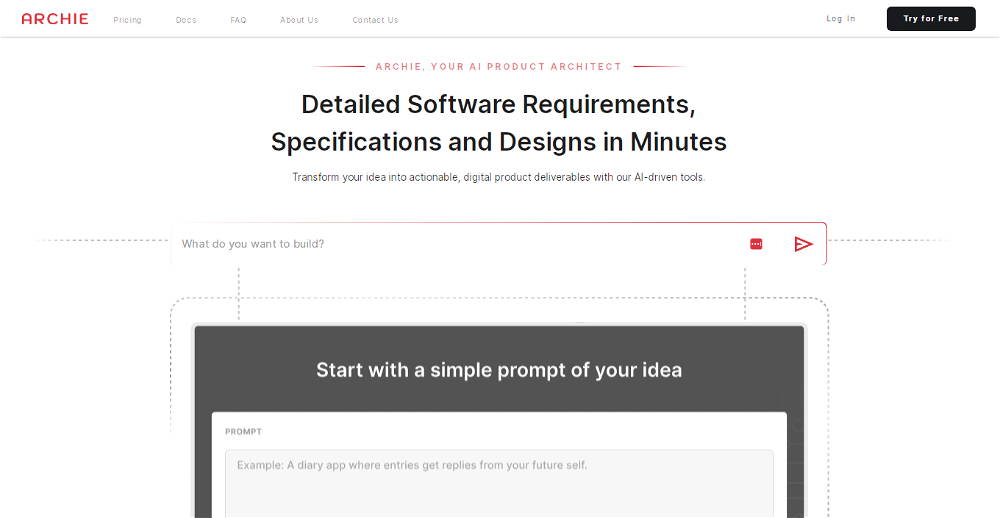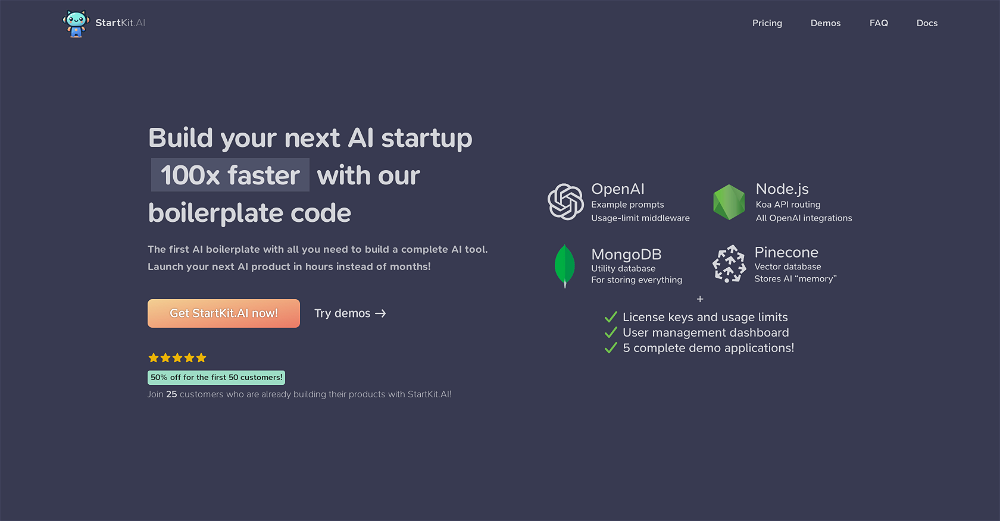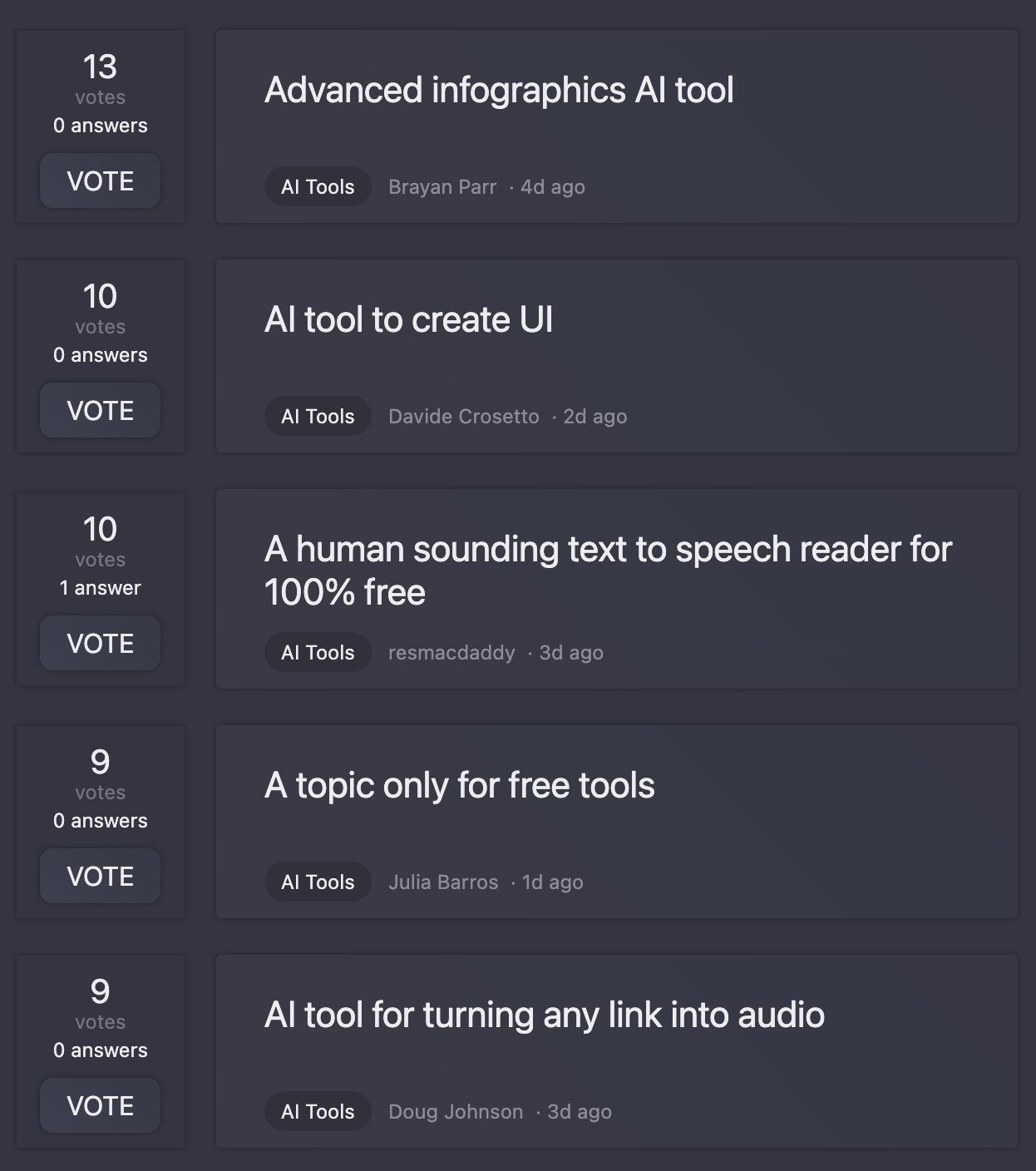What is Tractatus AI?
Tractatus AI is a generative feature deployment platform that enables users to build and deploy generative AI features. It has a discovery capability for accessing foundation models from major providers within a single interface. It also supports the integration of human feedback in the AI modeling process, which helps in continuous improvement and optimization.
How does Tractatus AI support different foundation models?
Tractatus AI supports a wide range of foundation models, which includes both image and text-based models, whether they are open or closed source. This gives users the flexibility to choose the best foundational model that suits their specific needs.
How does Tractatus AI facilitate human feedback integration?
Tractatus AI integrates human feedback by allowing users to gather ratings and comments on inference results. This feedback can be collected from both internal stakeholders and end users, aiding in the continuous improvement and optimization of AI models.
What makes Tractatus AI's deployment process unique?
Tractatus AI simplifies the deployment process by providing a single-click option to ship AI models to production. It also enables users to embed contextual information and maintain deployed models effortlessly. This fast and efficient process helps in reducing the time and resources required for model deployment.
How does the discovery capability of Tractatus AI work?
The discovery feature of Tractatus AI provides access to foundation models from major providers within a single interface. This allows users to compare and select the best models that are suitable for their specific use cases.
What types of comparisons does Tractatus AI offer for model selection?
Tractatus AI offers both quantitative and qualitative comparisons for model selection. This comprehensive and balanced comparison approach aids in making effective and informed decisions when selecting the most suitable model for specific use cases.
How does Tractatus aim to benefit applied science and engineering teams?
Tractatus AI aims to benefit applied science and engineering teams by overcome obstacles associated with building generative AI models. It simplifies the process of leveraging generative AI, thereby helping create value for teams and their respective organizations.
Can I use Tractatus AI for text-based models?
Yes, Tractatus AI supports text-based models. Users can leverage these models to build, experiment with, and deploy various AI features according to their requirements.
Does Tractatus AI support closed source models?
Yes, Tractatus AI supports both open and closed source models. This gives users the flexibility to select the most suitable models for their needs based on access and ownership considerations.
How does Tractatus AI streamline the deployment process for AI models?
Tractatus AI streamlines the deployment process by providing a single-click option to send AI models to production. Users can easily embed contextual information and effortlessly maintain the deployed models, thus reducing the overall deployment cycle time and potential maintenance hurdles.
Is it possible to gather end user feedback in Tractatus AI?
Yes, Tractatus AI allows the collection of end-user feedback. Users can gather ratings from end users on production deployments, which can be used to keep the iterative process going and improve model performance.
How does Tractatus AI help in running AI experiments?
Tractatus AI offers a platform for running AI experiments conveniently. Users can find optimal models, prompts, and configs to combine with their data. They can conduct prompt experiments, adjust configs, fine-tune models across multiple providers in parallel, and give the models an understanding of their own data to build customized, highly accurate use cases.
What advantage does the single interface feature of Tractatus AI provide?
The single interface feature of Tractatus AI facilitates access to foundation models from major providers all at one place. This enables users to easily compare and select the best models for their specific use cases without having to separately access individual model provider platforms.
Do I need any custom coding for collecting human feedback in Tractatus AI?
No, you don't need any custom coding to collect human feedback in Tractatus AI. The platform enables users to share experiment outputs with anyone in their organization and collect feedback in terms of ratings and comments on inference results.
Can I monitor performance and make updates after deploying via Tractatus AI?
Yes, Tractatus AI allows monitoring of performance, data embedding, feedback collection, and making model, prompt, and config updates after deploying. This ensures that users can maintain and improve their deployments without hassle.
How can Tractatus AI ease the process of selecting the best models for my use case?
Tractatus AI simplifies the process of selecting models by providing a single interface to access foundation models from major providers. It also offers both quantitative and qualitative comparisons for model selection. This facilitates easier and more effective decision making in terms of choosing the most suitable models for different use cases.
Can I compare results of different models side-by-side in Tractatus AI?
Yes, you can compare the results of different models side-by-side in Tractatus AI. This facilitates a comprehensive evaluation of the model outputs and helps in selecting the most effective model for the given use case.
Does Tractatus AI allow multi-model, multi-modal approach?
Yes, Tractatus AI allows a multi-model, multi-modal approach. It provides access to image or text-based foundation models from major providers in a single interface, supporting an extensive and flexible approach to AI experimentation and implementation.
How can I leverage Tractatus AI for generative use cases?
To leverage Tractatus AI for generative use cases, you can experiment with different combination of models, prompts, and configs with your data to build customized use cases. Additionally, Tractatus AI's interface enables you to spot the best foundation models for your generative AI scenarios, evaluate the results, and deploy the successful models to production.
How does Tractatus AI ensure continuous improvement and optimization?
Tractatus AI ensures continuous improvement and optimization through its feedback integration mechanism. It allows users to collect ratings and comments on inference results from both internal stakeholders and end users. This feedback, combined with the ability to conduct side-by-side comparisons and run experiments efficiently, facilitates continuous refining and enhancing of AI models.













